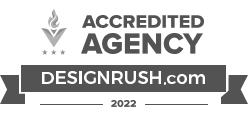Content Audit Services by PurpleZ
Do you think your company is getting the returns it deserves from your digital content? PurpleZ specializes in helping businesses maximize their web presence by offering content audit services. We guarantee that every piece of content on your website works hard to accomplish your goals, whether it’s a thorough SEO content audit or a comprehensive website content audit. PurpleZ is here to give quantifiable results, whether you’re seeking for the best content audit tools, assistance with an ecommerce content audit, or a content SEO audit.
What Is a
Content Audit
?
A content audit is a methodical assessment of every piece of content on your website or other digital platforms. It finds your areas of strength, weakness, and potential in addition to simply listing your assets. PurpleZ makes sure your content is optimized for both search engines and your audience by performing a site content audit.
In order to make sure your company is set up for success, we examine everything from blogs to landing sites when we offer content auditing services. A thorough web content audit can reveal untapped potential to increase user engagement, raise search engine rankings, and optimize return on investment.
Why Choose PurpleZ for Your SEO Content Audit?
PurpleZ offers customized content audit services made to fit your company’s particular requirements. Here’s why our customers have faith in us:
- Expertise with Leading Tools: To guarantee comprehensive research and useful insights, we employ the best tools available on the market, such as Ahrefs and Semrush content audit.
- Custom Strategies: There are no premade answers here. Each content audit service is tailored to your company’s objectives.
- Results-Driven Approach: Our goal is to produce measurable results, such as improved conversions, more visitors, or higher rankings.
Our Content Audit Services
To improve your online visibility, PurpleZ provides a variety of SEO content audit services:
Website Content Audit
Our website content audits are intended to assess every piece of content on your website, including product pages and homepages. To assist you in reaching your business objectives, we pinpoint areas that require improvement and suggest modifications.
SEO Content Audit
The goal of a content SEO audit is to increase the search engine visibility of your website. We make sure your content ranks highly on Google and other search engines by examining your keywords, metadata, and linking structure.
Ecommerce Content Audit
Our ecommerce content audits are designed specifically for online retailers to increase product visibility and sales. To assist you draw in and convert more customers, we examine product descriptions, category pages, and SEO components.
Blog Content Audit
A great tool for increasing traffic is a blog. In order to increase the effect of your articles, our blog content audit assesses them for relevancy, SEO performance, and engagement metrics.
Technical SEO Audit Service
Identify Keywords
Identify the most relevant and important keywords for your website and content.
Content Audit
Review existing content and assess how well it is optimized for the identified keywords and other SEO best practices.
Website Audit
Perform an audit of the website structure and content to determine how well it is optimized for the identified keywords.
Reporting
Provide a detailed report outlining the findings and recommendations for improving the website and content to improve search engine visibility.
Key Features of a Content Audit by PurpleZ
Your content audits will consist of the following when you collaborate with us:
Content Inventory:
- We keep track of all your digital assets and evaluate their functionality.
SEO Optimization:
We assess keywords, metadata, and technical components using tools such as Ahrefs content audit and Semrush content audit.
Gap Analysis:
Determine which aspects of your content strategy are lacking.
Engagement Metrics:
- Examine time on page, bounce rates, and other important KPIs.
Actionable Recommendations:
Learn how to increase the efficacy of your content step-by-step.
Why Do You Need a Content Audit?
Businesses that wish to remain competitive online must conduct a site content audit. This is the reason:
- Boost Search Rankings: Use a targeted SEO content audit to improve your content’s exposure on Google.
- Enhance User Experience: Make sure your audience can relate to and find value in your content.
- Increase ROI: To optimize value, concentrate on high-performing content and eliminate underperforming assets.
- Strategic Insights: Get a clear plan for the creation and updating of content in the future.
Our Process: Conduct a Content Audit with PurpleZ
Step 1: Discovery and Goals
We start by learning about your business goals and the difficulties you are having with your content.
Step 2: Comprehensive Analysis
We thoroughly examine your content performance and SEO KPIs using sophisticated content audit tools like Ahrefs and Semrush.
Step 3: Custom Recommendations
We provide a customized report with doable actions to optimize your content based on our results.
Step 4: Implementation Support
Do you need assistance making changes? Our staff is prepared to help with fresh content creation, SEO enhancements, and content updates.
Who should do the SEO content audit?
One excellent method to enhance the functionality of your website is to conduct an SEO content audit. Anyone with site access can perform the audit, although it’s best if the individual conducting it has some SEO knowledge.
- Website owner: If you are the owner and operator of your website, nobody is more qualified than you! You’ll understand precisely what has to be improved and how.
- Marketing manager:This may be the perfect position for you if you are in charge of making your company’s websites and online marketing activities as effective as possible.
- Webmaster: If someone else manages all of your company’s digital properties, they may want their own expert opinion on how well their work is doing – especially if they get called into meetings where performance figures are discussed regularly!
Frequently Asked Questions
What is a content audit definition?
Analyzing and assessing the effectiveness of digital content in order to pinpoint areas that require improvement is known as a content audit.
Can a content audit improve SEO?
Indeed! A comprehensive SEO content audit identifies problems that affect search rankings, such as duplicate content, metadata mistakes, and keyword gaps.
What tools do you use for a content audit?
To provide accurate, data-driven insights, PurpleZ uses industry-leading tools like Ahrefs Content Audit and Semrush Content Audit.
How long does a content audit take?
Although the time frame varies according on the size of your site, most audits are finished in two to four weeks.
Do you provide implementation support?
Of course! To make sure your content strategy is successful, our staff can help you put suggestions into practice.












Bronze
- No. of Pages: 20
- Keyword Audit
- Competitor Analysis
- On-Page Optimization
- Content Suggestions
- Link Analysis
- Page Speed Audit
- Usability Audit
- Schema Markup
- Conversion Rate Optimization
- Reporting & Recommendations
- Consultation
Bronze
- No. of Pages: 50
- Keyword Audit
- Competitor Analysis
- On-Page Optimization
- Content Suggestions
- Link Analysis
- Page Speed Audit
- Usability Audit
- Schema Markup
- Conversion Rate Optimization
- Reporting & Recommendations
- Consultation
Gold
- No. of Pages: 150
- Keyword Audit
- Competitor Analysis
- On-Page Optimization
- Content Suggestions
- Link Analysis
- Page Speed Audit
- Usability Audit
- Schema Markup
- Conversion Rate Optimization
- Reporting & Recommendations
- Consultation
Purple
- No. of Pages: 500
- Keyword Audit
- Competitor Analysis
- On-Page Optimization
- Content Suggestions
- Link Analysis
- Page Speed Audit
- Usability Audit
- Schema Markup
- Conversion Rate Optimization
- Reporting & Recommendations
- Consultation
- No. of Pages: 20
- Keyword Audit
- Competitor Analysis
- On-Page Optimization
- Content Suggestions
- Link Analysis
- Page Speed Audit
- Usability Audit
- Schema Markup
- Conversion Rate Optimization
- Reporting & Recommendations
- Consultation
- No. of Pages: 50
- Keyword Audit
- Competitor Analysis
- On-Page Optimization
- Content Suggestions
- Link Analysis
- Page Speed Audit
- Usability Audit
- Schema Markup
- Conversion Rate Optimization
- Reporting & Recommendations
- Consultation
- No. of Pages: 150
- Keyword Audit
- Competitor Analysis
- On-Page Optimization
- Content Suggestions
- Link Analysis
- Page Speed Audit
- Usability Audit
- Schema Markup
- Conversion Rate Optimization
- Reporting & Recommendations
- Consultation
- No. of Pages: 50
- Keyword Audit
- Competitor Analysis
- On-Page Optimization
- Content Suggestions
- Link Analysis
- Page Speed Audit
- Usability Audit
- Schema Markup
- Conversion Rate Optimization
- Reporting & Recommendations
- Consultation
Succeeded Projects
Working Hours were spent
The awards won by our team.
Our marketing agency is frequently described by our clients as exceptionally innovative and results-driven, a reputation that is underscored by the numerous industry awards we have won for our cutting-edge campaigns and outstanding client service.










What our clients
say about us.



Ready to Maximize Your Content’s Potential ?
Ready to Maximize Your Content’s Potential ?
Your content can become a potent growth engine with PurpleZ’s content audit services. We can assist you whether you require a website content audit, an SEO content audit, or assistance with content SEO audits.
Get Started with the Best Content Audit Services Today!
To begin changing your content strategy, get in touch with PurpleZ right now for a free consultation. Instead of making your content work harder, let’s make it work smarter!
